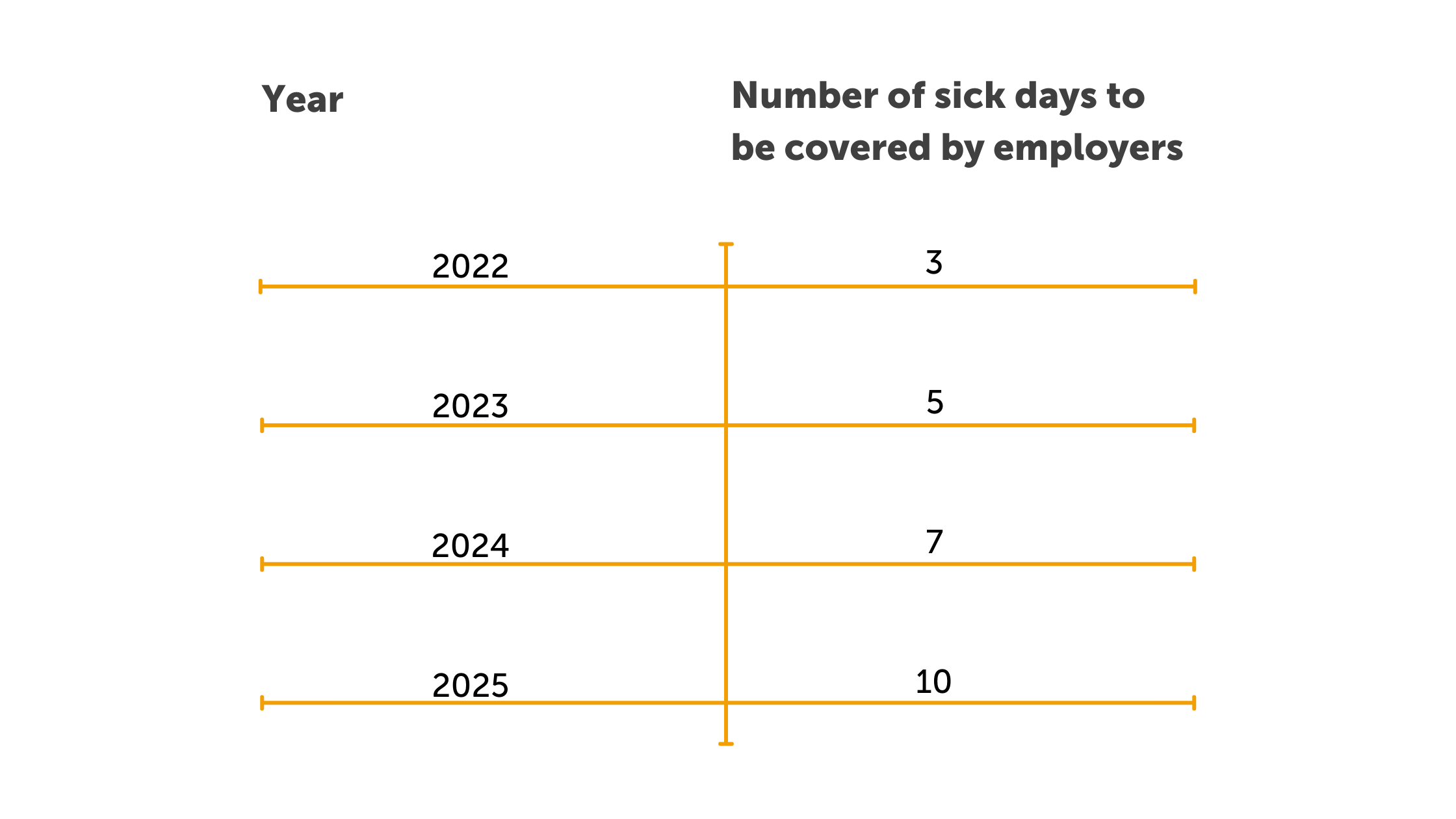Jan 2022
25
The Sick Pay Bill 2021: What to Expect
The proposed Sick Leave Bill 2021 will see the introduction of a Statutory Sick Pay (SSP) scheme, beginning in 2022. The introduction of SSP will likely impact your payroll. As your payroll software provider, Thesaurus Payroll Manager will equip you with the necessary tools to make implementing and managing sick pay as seamless as possible.
Here’s what you need to know about the proposed Sick Leave Bill 2021.
What is the purpose of the Sick Leave Bill 2021?
In Ireland, unlike other European jurisdictions, employees have no legal right to be paid while they are off work ill. Typically, sick leave is negotiated in an employment contract, which is at the sole discretion of the employer. However, access to paid sick leave is unequal, with lower-income earners less likely to have it. This disparity was highlighted during the COVID-19 pandemic.
In an attempt to address this issue and to bring Ireland more in line with other European countries, the Tánaiste Leo Varadkar, received cabinet approval in June 2021 to draft the Sick Leave Bill 2021. Speaking about the bill he said, “It’s not right that people feel forced to go to work when they are sick and it’s not good for public health”.
The Statutory Sick Bill 2021 is separate to the Enhanced Illness Benefit for COVID-19 where different conditions and payment apply.
What does the Sick Pay bill propose?
A draft of the Sick Leave Bill 2021 was published by the government on the 4th November 2021. The bill proposes that the scheme is rolled out through four phases, with an initial introduction of three days’ sick pay from 2022, rising to five days in 2023, and seven days in 2024. This will be eventually extended to 10 days’ sick pay in 2025.

Eligibility and criteria for the Statutory Sick Leave scheme
Currently, the bill proposes that only employees who have worked 13 weeks’ continuous service will be entitled to a sick leave payment from their employer for up to three days of certified sick leave per year. The employee must provide a medical certificate signed by a registered medical practitioner stating that they are unfit to work, in order to avail of the scheme.
How will the scheme impact employers?
From 2022, employers who do not already provide sick pay to their employees will have to pay their employees Statutory Sick Pay for up to three days off due to illness. The rate of payment will be 70% of the employee’s normal daily wages and this is capped at a maximum of €110 per day.
The entitlement to SSP is in addition to any other leave the employee is entitled to, such as annual leave, parental leave, maternity leave or paternity leave.
Employers who already provide employees with a sick leave scheme, will not be required to meet the bill’s obligations if the terms of the scheme they offer, is as favourable or more favourable to the employee. When determining whether their current scheme is as or more favourable to the employee than the SSP scheme, the employer should consider the following:
- How long a service must the employee work before sick leave is payable
- How many days must an employee be absent due to illness before sick leave is payable
- How long is the period for which sick leave is payable
- What is the amount of sick leave that is payable
- What is the reference period of the sick leave scheme
Employers must also keep records for each employee, recording the statutory sick leave taken by their employee. Each employee’s records must include
- Their period of employment
- The dates of statutory sick leave taken
- The rate of statutory sick leave payment
How do you prepare for the Statutory Sick Leave Bill 2021?
If you’re an employer who already provides a sick pay leave through the employee’s contract or through union agreements, you’ll need to consider your current scheme under the proposed legislation. As mentioned above, review whether your scheme meets or is more favourable than the statutory provision. If it is, your obligation under the legislation is met. If it does not, it will need to be modified to bring it up to par.
If you’re an employer who does not already provide sick pay, the new bill will likely result in additional costs for your business. There will be the direct cost of the sick payments and there may also be indirect costs due to additional administrative duties. On the other hand, SSP can benefit employers, resulting in a reduced employee turnover, a safer working environment, as well as reducing presenteeism and absenteeism.
When will the Sick Leave Bill 2021 be phased in?
As the Sick Leave Bill 2021 is being phased in over a four-year period, beginning in 2022, SSP will likely have an impact on your business this year. While this scheme was expected to become mandatory on 1st January 2022, there are still no current legal obligations to comply with it. The bill is still before the Oireachtas and may be subject to future amendments.
To learn more about how Thesaurus Connect can help you manage your employee’s leave, why not book a free online demo today.
Related Articles:






